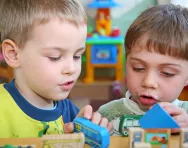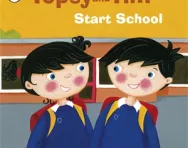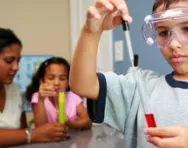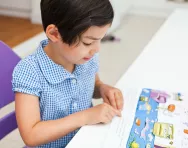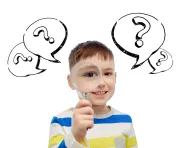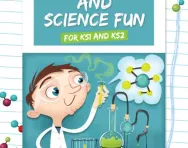Important update from TheSchoolRun
For the past 13 years, TheSchoolRun has been run by a small team of mums working from home, dedicated to providing quality educational resources to primary school parents. Unfortunately, rising supplier costs and falling revenue have made it impossible for us to continue operating, and we’ve had to make the difficult decision to close. The good news: We’ve arranged for another educational provider to take over many of our resources. These will be hosted on a new portal, where the content will be updated and expanded to support your child’s learning.
What this means for subscribers:
- Your subscription is still active, and for now, you can keep using the website as normal — just log in with your usual details to access all our articles and resources*.
- In a few months, all resources will move to the new portal. You’ll continue to have access there until your subscription ends. We’ll send you full details nearer the time.
- As a thank you for your support, we’ll also be sending you 16 primary school eBooks (worth £108.84) to download and keep.
A few changes to be aware of:
- The Learning Journey weekly email has ended, but your child’s plan will still be updated on your dashboard each Monday. Just log in to see the recommended worksheets.
- The 11+ weekly emails have now ended. We sent you all the remaining emails in the series at the end of March — please check your inbox (and spam folder) if you haven’t seen them. You can also follow the full programme here: 11+ Learning Journey.
If you have any questions, please contact us at [email protected]. Thank you for being part of our journey it’s been a privilege to support your family’s learning.
*If you need to reset your password, it will still work as usual. Please check your spam folder if the reset email doesn’t appear in your inbox.
What your child will learn in Foundation Stage science
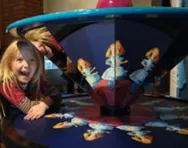
Science at Foundation Stage is introduced indirectly through activities that encourage your child to explore, problem solve, observe, predict, think, make decisions and talk about the world around them. It’s called ‘knowledge and understanding of the world’.
Early Years science also helps children with skills in other Foundation Stage areas of the national curriculum, such as physical development and creative development. Here’s what they’ll learn in each subject.
For a detailed introduction to what children learn in Nursery Science and Reception Science, read our guides for parents.
Knowledge and understanding of the world
Children explore creatures, people, plants and objects in their natural environments. They observe and manipulate objects and materials to identify differences and similarities. For example, they may look at an egg whisk, sand, paper and water to learn about things that are natural and manmade and their different functions. Children also learn to use their senses, feeling dough or listening to sounds in the environment, such as sirens or farm animals.
Your child will be encouraged to ask questions about why things happen and how things work. They might do activities such as increasing the incline of a slope to observe how fast a vehicle travels, or opening a mechanical toy to see how it works. Your child will also be asked questions about what they think will happen to help them communicate, plan, investigate, record and evaluate findings.
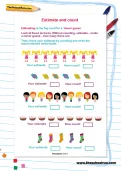
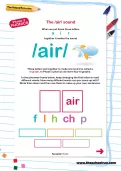
Start the Reception Learning Programme!
- Weekly maths & English worksheets direct to your inbox
- Follows the National Curriculum
- Keeps your child's learning on track
Physical development
Awareness of space may be taught by encouraging children to make big and small movements to music and to think about how much space they need. They will also learn to recognise changes that happen to the body when they are active.
Children will also learn about the importance of keeping healthy and the things that contribute to this by, for example, cooking or identifying fruit and vegetables.
Creative development
Children explore and respond to a variety of sensory experiences through music and art. Children might collect materials, such as rough sandpaper, soft fabric and shiny bottle tops to build a sensory wall. They explore colour, texture, shape, form and space by mixing colours, painting, modelling and dancing.
They also learn about sounds - how they can be changed and how to imitate sounds they hear.
Handy home learning hints
- Have fun around the house using your five senses. Listen out for the sound of the oven timer; identify objects by feeling around in a bag; taste salty and sweet foods.
- Talk about how the body works (healing, the role of food, reproduction, digestion).
- Do you have a houseplant that has outgrown its pot? Allow your child to help you re-pot it. Point out and discuss how the roots sustain plant life.
- Talk to your child about what happens when water is heated. With caution, show what happens.
- Ask your child to find things that need either a pull or push to make them work (doorbell, rocking chair, door, drawer).
- Talk about electricity and its potential dangers. Survey the electrical appliances, plug sockets and lights in your home. Demonstrate how unplugging the television, for example, will stop it from working.
- Explore the sound of music! Use whatever you have – pots and pans, glass utensils, hollow plastics and empty boxes. Suggest ways of describing the sounds (high, low, loud, quiet, rattling, ringing).
